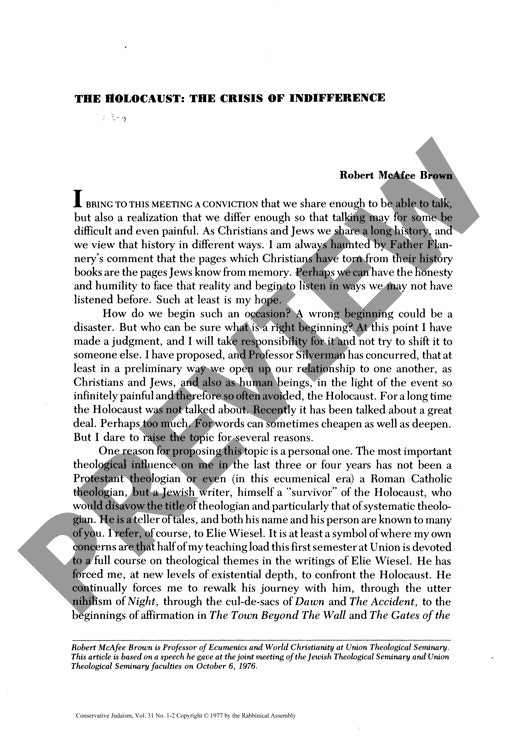The Holocaust the Crisis of Indifference
Couldn't load pickup availability
When survivor and writer Elie Wiesel proclaimed indifference as more dangerous than hatred, he illuminated a central crisis of the Holocaust that continues to challenge both Jewish and Christian theological frameworks. The Holocaust's moral implications force a fundamental reexamination of religious belief and human responsibility, particularly regarding those who remained silent in the face of genocide. Through theological reflection and comparative analysis of Jewish and Christian responses, distinctive patterns emerge within both faith communities. Jewish responses range from Rubenstein's complete rejection of God to Fackenheim's assertion that denying God grants Hitler posthumous victory, while Christian reactions span from defensive avoidance to radical theological reconstruction. Both traditions confront two inescapable crises: the scope of collective responsibility beyond direct perpetrators, and the challenge to faith posed by inexplicable evil. Any meaningful response to the Holocaust demands transformation of both traditions - Christians must reconcile claims of messianic fulfillment with continuing evil, while Jews wrestle with divine silence amid suffering. Interfaith dialogue emerges as essential not only for addressing these theological challenges but for preventing future genocides, underscoring Wiesel's warning that indifference represents the most dangerous form of complicity.

More Information
-
Physical Description
-
Publication Information
Published 1976
ISBN
-
Publication Credits
Robert Brown

